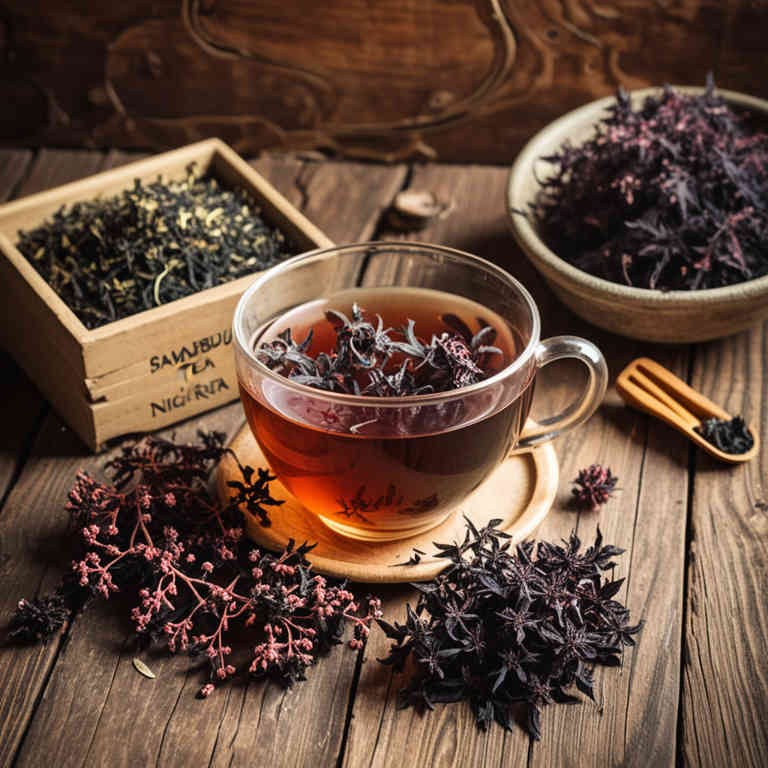Sambucus nigra tea for medicinal use

Sambucus nigra tea is a herbal preparation made from the dried berries of the European elder tree.
It is commonly used in herbalism for its purported immune-boosting properties and as a remedy for colds and flu. The tea is often prepared by steeping the berries in hot water, and it may also be combined with other herbs for enhanced effects. In traditional medicine, it has been used to support respiratory health and as a mild diuretic.
However, it should be used with caution, as raw berries can be toxic.
Uses
Sambucus nigra tea has been used to treat a variety of ailments for centuries, with roots in ancient European herbal medicine.
Historically, it was valued for its potential to alleviate fevers, respiratory issues, and digestive discomfort, and was often used during seasonal changes to support the immune system. In traditional practices, it was also believed to have detoxifying properties and was sometimes consumed to ease symptoms of the common cold or flu. Modern research has explored its antioxidant and anti-inflammatory properties, leading to its use in contemporary herbal remedies for immune support and as a natural remedy for mild respiratory conditions.
However, it is important to note that it should be used with caution and under the guidance of a healthcare professional.
Benefits
Sambucus nigra tea has health benefits such as boosting the immune system, reducing inflammation, and supporting respiratory health.
It is rich in antioxidants, which help protect cells from damage caused by free radicals. This herbal tea may also aid in digestion and promote detoxification due to its high content of flavonoids and other bioactive compounds. Some studies suggest it may have antiviral properties, making it useful during cold and flu seasons.
However, it should be consumed in moderation and consult with a healthcare professional before use, especially for those with existing health conditions.
Constituents
Sambucus nigra tea active constituents include flavonoids, anthocyanins, triterpenes, and mucilage.
These compounds contribute to its anti-inflammatory, antioxidant, and immune-supporting properties. Flavonoids and anthocyanins help neutralize free radicals and reduce oxidative stress. Triterpenes may support liver function and have antiviral effects.
Mucilage provides a soothing effect on the throat and digestive tract, making it beneficial for respiratory and gastrointestinal health.
Preparation
To make Sambucus nigra tea, begin by gathering dried elderberry flowers or berries, which are the primary ingredients.
Rinse the flowers or berries thoroughly to remove any dirt or debris. Place the dried ingredients in a heatproof container and pour boiling water over them. Let the mixture steep for 10 to 15 minutes to allow the flavors and nutrients to infuse into the water.
Strain the tea into a cup and enjoy it either hot or cooled, optionally adding a sweetener or lemon to enhance the taste.
Side Effects
Sambucus nigra tea may lead to gastrointestinal discomfort, such as nausea, vomiting, or diarrhea, especially when consumed in large quantities or on an empty stomach.
It can also cause allergic reactions in individuals sensitive to plants in the Caprifoliaceae family, manifesting as skin rashes, itching, or respiratory symptoms. Prolonged use may interfere with blood sugar levels, making it potentially unsafe for people with diabetes. Additionally, it may interact with certain medications, including those for diabetes, blood pressure, and blood thinners, increasing the risk of adverse effects.
Due to its potential toxicity, especially if prepared improperly or consumed in high doses, it is important to use this herbal preparation with caution and under professional guidance.